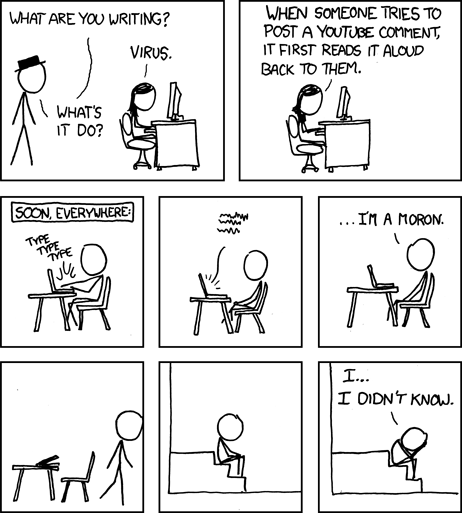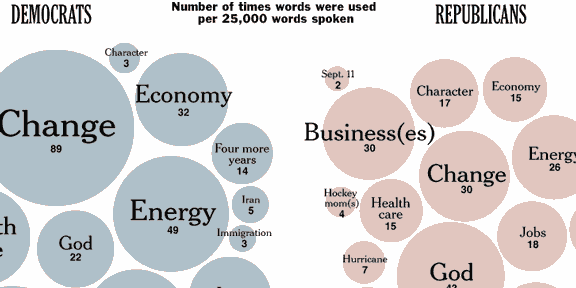One in 8 Million
 One in 8 Million is a new online NYTimes series photo-sound portraits: “A collection of stories from the legions of characters who call New York’s five boroughs home. A new story will be added weekly.”
One in 8 Million is a new online NYTimes series photo-sound portraits: “A collection of stories from the legions of characters who call New York’s five boroughs home. A new story will be added weekly.”
LIFE pix
Google posted the LIFE photo archive, “millions of photographs from the LIFE photo archive, stretching from the 1750s to today. Most were never published and are now available for the first time.”
To search only the LIFE photo archive, add source:life to any Google image search. Here’s some gems from radio source:life search:
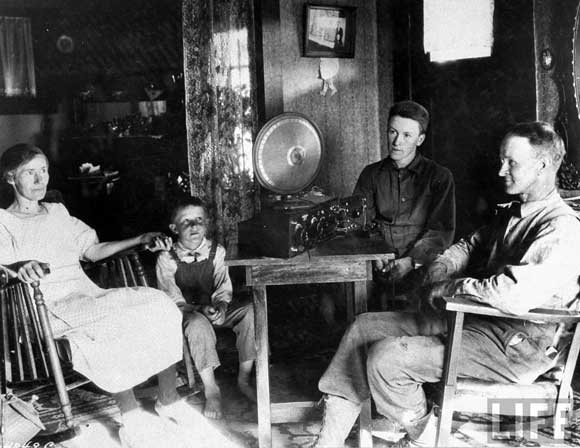 Farm family gathered around table on which radio receiver is set & listening to radio for entertainment. Location: Hood River County, OR, US / Date taken: July 20, 1925 © Time Inc. More…
Farm family gathered around table on which radio receiver is set & listening to radio for entertainment. Location: Hood River County, OR, US / Date taken: July 20, 1925 © Time Inc. More…
Natural Sound
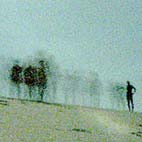 Ben Adair has unearthed a treasure trove of online audio at his new Natural Sound site. It’s an audio archive, blog, and podcast featuring works by dozens of producers on the several series Ben has helmed, the dearly departed Pacific Drift & Savvy Traveler, and the still-going-strong Weekend America.
Ben Adair has unearthed a treasure trove of online audio at his new Natural Sound site. It’s an audio archive, blog, and podcast featuring works by dozens of producers on the several series Ben has helmed, the dearly departed Pacific Drift & Savvy Traveler, and the still-going-strong Weekend America.
Ben posted every piece from PacDrift’s two seasons and 26 episodes. This one’s by Ben himself, from Pacific Drift 03: The Markings of Culture, correctional officer “D.J. Vodicka Takes on the Most Dangerous Prison Gang of All” (7:56 mp3):
And do check Ben and wife Shoshanna’s new baby pix.
Google Alert for Hacked Site
Pretty good idea: “How to use Google Alerts to find out if your site gets hacked.” Make an Alert w/ some common spam terms, eg:
viagra OR cialis OR Xanax site:yoursite.com
I just made such an alert, so let’s see if this post triggers one.
NYT Viz Labs
NYT data sets and multimedia design team up with IBM “Many Eyes” technology to bring you the Visualization Lab, where you can create your own “visual representations of data and information,” such as:
A/V SoundSlideShows
A/V- Simple Sound/Slide Shows will be an audio-visual web widget for the masses, a tool which synchronizes sound and images online, built for the needs of small public radio stations and independent producers.
It’s just in planning/possibility stage right now, but this player is our proposal to the Knight News Challenge; read it, rate it, review it.
XKCD Comics
From XKCD, “a webcomic of romance, sarcasm, math, and language,” this one’s titled “Listen to Yourself:”
WikiAudio
 Want to know the difference between a analog and digital or bit-depth and sample rate? How about tutorials on Pro Tools and Logic editing software, M-S stereo and EQ processing?
Want to know the difference between a analog and digital or bit-depth and sample rate? How about tutorials on Pro Tools and Logic editing software, M-S stereo and EQ processing?
It’s all at WikiAudio, a “free online pro audio encyclopedia and information database that anyone can contribute to,” with everything audio from AAC to XLR.
NPR Story Timelines
You can now trace a subject in NPR stories over time with the new NPR / SIMILE Timeline (connects NPR’s API with MIT’s Simile Timeline). Scripts courtesy of John Tynan, poet w/ a piano and a python code-book — a dangerous combo.
You create the timeline with a search term; then you can scroll thru the months, or click the story-titles for summaries and links. For instance, there seems to be a recent spike in NPR stories on “lipstick” — maybe Revlon announced a new color:
Wordle
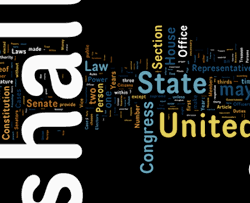 Wordle “is a toy for generating ‘Beautiful Word Clouds’ from text you provide.” For instance, to the right is The Constitution of the United States as a wordle (detail; click to enlarge):
Wordle “is a toy for generating ‘Beautiful Word Clouds’ from text you provide.” For instance, to the right is The Constitution of the United States as a wordle (detail; click to enlarge):
The Java applet was writ by Jonathan Feinberg of IBM Research.
Love and Dairy
![]() This afternoon on Day to Day, by producer Christopher Booker, for HV and Chicago Tribune multimedia.:
This afternoon on Day to Day, by producer Christopher Booker, for HV and Chicago Tribune multimedia.:
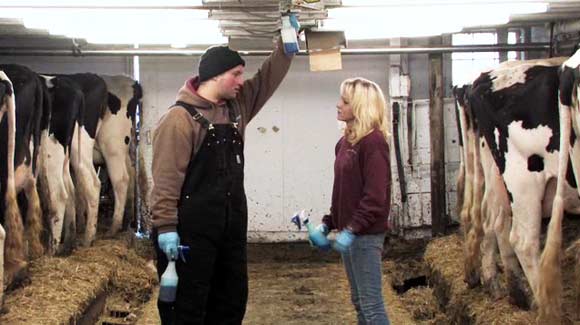
John Engel met Lisa on FarmersOnly.com.
Photo © Christopher Booker
Words They Used
The NY Times web wizards have come up with another graphically revealing data display. “The Words They Used” charts the number of times speakers at the GOP and Dem conventions used some key terms. Here’s a detail:
Dipity Timelines
The Internet Meme timeline in a previous post is from an outfit called: Dipity “the easiest way to tell the stories of people and topics you care about.” They’ve got other apps to make timelines based on search term: TimeTube for YouTube,Tickr for Flickr, and Archaeologist for Digg. For instance, here’s YouTube vids found with the search term “hearvox” — the tag for HV-productions:
Internet Memes
A highly interactive, heavily linked history of Internet Memes, from the inception of terms like Internet and Cyberspace, thru the South Park short, Hamster Dance, JenniCam, and Steve Colbert WH Dinner, up the to present and future — it’s community user updatable. The timelines’ full features and flourishes are at Dipity; here’s their embed version:
Olympic Medals Map
An interactive (flash) Olympic Medal Count Map/chart/list, from the 1896 Olympic Games in Athens to 2008 in Beijing, on NYTimes.com. Screenshot:
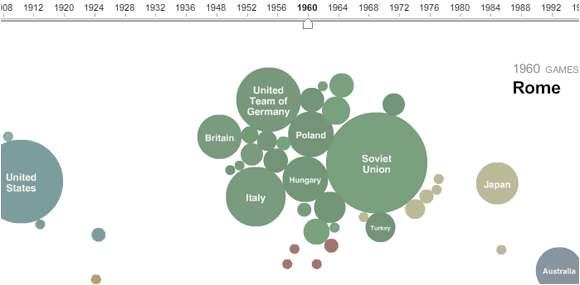
Circles are sized by the number of medals that countries won in summer Olympic Games. Use the slider to view past Olympics, or click on a country to display a list of its medal winners.
via Ben- Comma Q.
NPR API Query Generator
In response to Catherine’s comment:
One easy way to use the NPR API Query Generator is to:
Build the Query for NPR Stories
1. Check Fields> Output Format > HTML Widget (this will allow you to see the results).
2. Under the tab: Control, try some Search Terms, Dates, Number of Results, and any other tabs, Topics, Series, Fields, etc, to get the content you want to display.
3. Click the button: Create API Call button (the query url will appear in the Generated API Call box.
4. Now click the button: Run API Call. The results will show in the Output box, as they would on a webpage (if you have HTML Widget) checked.
5. Alter the Control> Search Terms, Dates, etc., and repeat the Create API Call and Run API Call, until you get the results you want displaying in the Output.
Get the API Call (Query URL) for NPR Stories
6. Now check Fields> Output Format > Javascript Widget.
7. Click the button: Create API button.
8. Copy the query URL from that appears in the API Call box.
Insert the NPR Stories Into Your Web Page/Post
9, Paste your query URL, and your API Key, into this Javascript code:
<script type="text/javascript" src="PasteYourQueryURLHere"></script>
10. Paste the above js code, with your query URL into your web-page or blog-post.
NPR API How-to
There were some requests on the AIR Daily maillist for a quick&dirty how-to on using NPR’s new API. Your most common use will probably be embedding a single story into your web page or blog post.
Find the story at NPR.org, then grab the url, e.g. this recent HV piece:
http://www.npr.org/templates/story/story.php?storyId=91881310
Copy the above storyID at the end of the url, and paste it into the JavaScript code below where it sez “PasteStoryIDHere”; also paste in your NPR API Key at “PasteYourAPIKeyHere” (instructions below on how to get one):
<script type="text/javascript" src="http://api.npr.org/query?id=PasteStoryIDHere,&fields=title,teaser,storyDate,show,audio&output=JS&apiKey=PasteYourAPIKeyHere"></script>
Now paste all the above into your page/post, and it’ll display like this:
To display more than one story, list each ID, separated by a comma; e.g., the ID’s of these recent Jack Chance encounters: http://www.npr.org/templates/story/story.php?storyId=89723386 http://www.npr.org/templates/story/story.php?storyId=88961745 used in this code: <script type="text/javascript" src="http://api.npr.org/query?id=89723386,88961745&fields=title,teaser,storyDate,show,audio&output=JS&apiKey=PasteYourAPIKeyHere"></script> look like this:
 Â
Notice I’ve specified the fields=title,teaser,storyDate,show,audio. Those fields determine what’ll show on the page: you can remove some, or add others. The list of what’s possible is under the FIELDS tab of NPR’s Query Generator.
While there, check out the many other possibilities for interacting with NPR database of stories, audio, text, and photos. You can specify search terms, NPR shows, topics, and a host of other criteria for creating custom lists. And you can see how the lists will display. If there’s demand I’ll add another how-to sometime on using the Query Generator. (UPDATE: QG how-to added.)
To get an NPR API Key, start here: http://www.npr.org/api/index
Click the upper-left Register link to start your account. Or, if you subscribe to an NPR newsletter, you already have an account: click instead the upper-left Login link and enter your NPR subscription email and password.
Once in, click the Manage link in the upper-left. Copy it. (You can get it again anytime by returning to your account settings, and using the Open API top tab.)
Update: also see post for NPR API Query Generator.
NPR.org Widgets
NPR is already offering a collection of widgets made by themselves and others (using their new API), including this flash-y Reverbiage spinning-globe story-list:
NPR API
NPR.org has released their API (application programming interface) allowing access to NPR’s huge stockpiles of stories and sounds from 1995 till now. Anyone can embed NPR story-lists on their own web-pages and blogs, along w/ all NPR’s audio player possibilities: Real, Windows Media, or NPR’s own pop-up player right from your own page — you can “Play Now” a single story or build a playlist. Try it, here’s a recent HV NPR story:
June 27, 2008 | NPR· Amy Jo is a single mother of two toddlers. Each day is a struggle to provide the life she promised her daughter two years ago, but she’s glad their father is out of the picture.
Notice you also get streaming mp3s (.m3u), something not yet even on NPR’s own story pages. And who knows what widget-ry bit-twisters might craft from NPR’s new embrace of open-source-ness (see next post).
Techies: the API outputs as either an HTML or JavaScript widget, or in several XML formats, including RSS, ATOM, and NPR’s own custom NPRML. For details on constructing API calls and getting an API key, start at the Inside NPR.org blog. And you’re gonna love their Query Generator.

